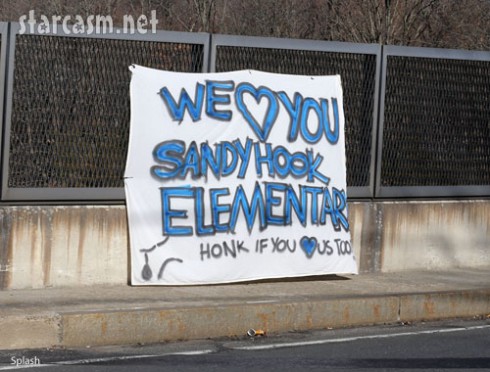How to help the victims of the Sandy Hook shooting, and how to help your own child cope
Yesterday 20 children and 6 adults were brutally murdered at an elementary school in the most deadly school shooting in history before the shooter Adam Lanza turned the gun on himself.
The grief that the families, friends, and the community is suffering is beyond measurable, but there are small ways to show your support and help.
The Newtown Parent Connection is offering trauma support sessions tomorrow from 2 to 5. One way the greater community can help is by donating to this organization so they can continue to provide counseling and other services to the bereaved.
There is also an official support fund: The Sandy Hook School Support Fund.
The Red Cross was on the scene yesterday giving out pints of blood, and they have also set up grief counseling sessions.
There are limits to what we can do for these families specifically, but one way you can help in this national tragedy, is by helping the children in your lives cope with their own grief in a constructive way. Save the Children has given out 10 tips to help any child cope with this devastating news:
1. Limit television time. While it can be important for adults to stay informed about the situation, television images and reports may be confusing and frightening for children. Watching too many television reports can overwhelm children and even adults. So, limit the number of television reports about the situation you and your children watch.
2. Listen to your children carefully. Try to find out what your child knows and understands about the situation before responding to their questions. Children can experience stress when they do not understand dangerous experiences. Find out what your child knows about the crisis. Then, talk to your child to help him or her understand the situation and ease their concerns.
3. Give children reassurance. Tell children that adults are doing everything they can to protect and help children who have been affected by the tragedy. Also, let them know that if an emergency happens, your main concern would be their safety. Make sure they know they are being protected.
4. Be alert for significant changes in behavior. Caregivers should be alert to any significant changes in children’s sleeping patterns, eating habits, and concentration levels. Also watch for wide emotional swings or frequent physical complaints. If any of these actions do happen, they will likely lessen within a short time. If they continue, however, you should seek professional help and counseling for the child.
5. Understand children’s unique needs. Not every child will experience a disaster in the same way. As children develop, their intellectual, physical and emotional abilities change. Younger children will depend largely on their parents to interpret events; older children and adolescents will get information from various sources, such as friends and the media. Remember that children of any age can be affected by a disaster. Provide them all with love, understanding and support.
6. Give your children extra time and attention. Children need close, personal attention to know they are safe. Talk, play and, most importantly, listen to them. Find time to engage in special activities with children of all ages.
7. Be a model for your children. Your children will learn how to deal with these events by seeing how you respond. The amount you tell children about how you’re feeling should depend on the age and maturity of the child. You may be able to disclose more to older or more mature children but remember to do so calmly.
8. Watch your own behavior. Make a point of being sensitive to those impacted by the crisis. This is an opportunity to teach your children that we all need to help each other.
9. Help your children return to a normal routine. Children usually benefit from routine activities such as set eating times, bed time, and playing with others. Parents should make sure their children’s school is also returning to normal patterns and not spending a lot of time discussing the disaster.
10. Encourage your children to do volunteer work. Helping others can give children a sense of control and security and promote helping behavior. During a disaster, children and adolescents can bring about positive change by supporting those in need

